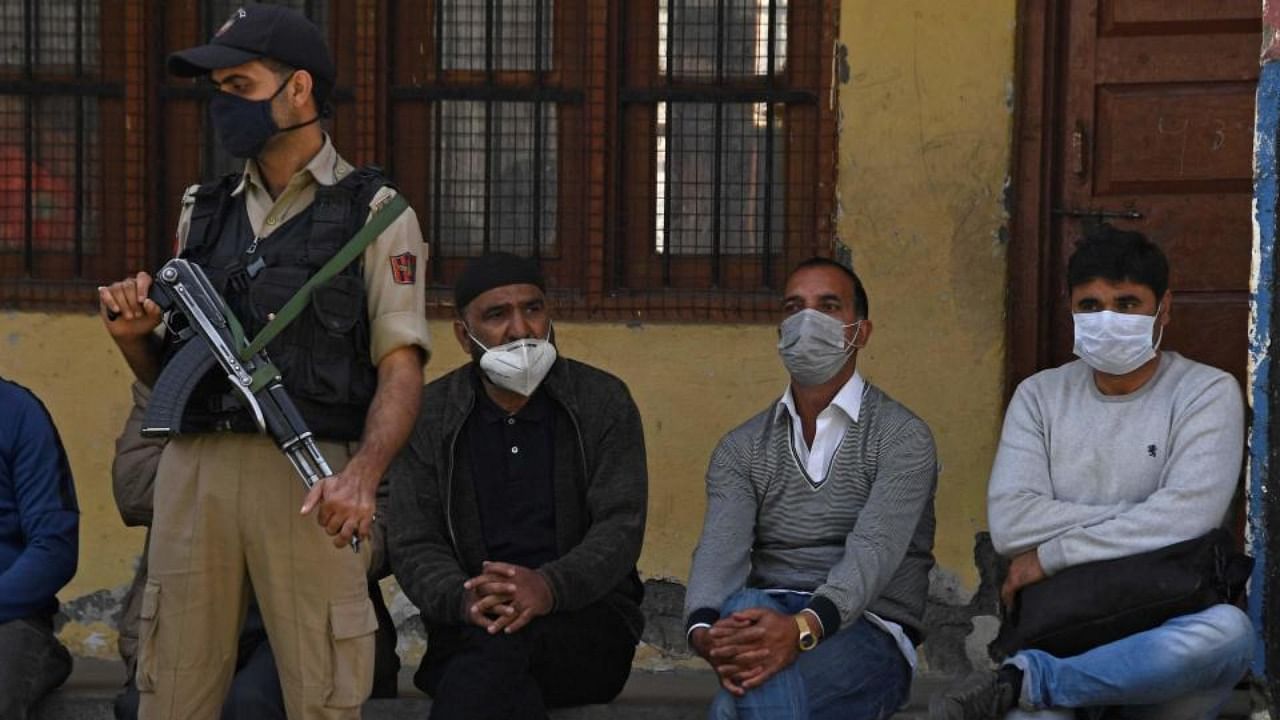
Mohammad Yousuf Tarigami is a veteran leader of the CP(I)M and four-time MLA from Kulgam constituency in south Kashmir. He is also spokesperson of Gupkar Alliance, an alliance of six mainstream political parties seeking restoration of special status of J&K. In an interview with Zulfikar Majid of DH, he talks about the fallout of recent killings of members of the minority community, New Delhi’s Kashmir policy etc. Excerpts:
What led to the sudden flare up in the situation in Kashmir?
The Government of India (GoI) is selling forced silence in Kashmir as normalcy. They are not allowing the media to report facts on ground. A fake narrative is being encouraged in the region. The GoI has ensured that there is no voice contrary to its claims. And the extremists on the other side want to take advantage of such a situation.
In your opinion, what could be the reason for the killing of minority community members?
Creating fear is the motive of those who committed these barbaric acts. The killers want to spread fear. The targeting of members of the minority community has sent shockwaves across Kashmir.
Do you see targeting of minorities happening again in Kashmir?
I cannot predict. My only appeal to people of Kashmir is that violence is not an instrument which can reduce our miseries and guarantee a better future. Equally, the course adopted by New Delhi is not constitutional and democratic. It is detrimental to the larger interests of the country. I appeal to people across the country to understand the implications of New Delhi’s undemocratic and unconstitutional decisions in J&K.
Do you see a 1990 like situation remerging?
In 1990, there was no mass condemnation of such killings and no voices emerging to resist such acts of violence. When the exodus of Pandits took place, at that time even thousands of political activists belonging to the majority community too had to leave. This time, the situation has not developed in such a fashion.
Where do you see the situation heading in Kashmir?
One doesn’t know what happens next. (But) I must say a situation of disappointments, hopelessness and forced silence does provide opportunity for extremism to grow. This is an encouragement for those elements who have been advocating violence.
After the killing of the Sikh lady principal, the members of the community expressed disappointment that the majority community didn’t participate in their silent protest. What are your views?
Certainly I would have liked that all of us together should have come openly to condemn such acts. But my brethren from Sikh community must understand that the majority community not only condemned the killings in one voice, but also visited the residence of the slain teacher. Everybody in Kashmir is feeling insecure due to the latest round of violence. Nevertheless, the majority community must do more to create confidence among the minorities and that is not a favour to anybody.
Do you want to say the majority community is also living under the fear of militants?
There is a forced silence and silence of graveyards in Kashmir.
Could you elaborate whether the “forced silence” is from the government or militants?
We were having forced silence from extremists here and we expected it. But now there is forced silence by those who claim to be well-wishers of Kashmiris and hold positions of responsibility. They should allow the people to express themselves. We must not be treated as a piece of land.
Do you want to say that the prevailing violence is the outcome of New Delhi’s policies?
I don’t say that. Extremists had been working on these lines earlier as well (killing civilians). Don’t measure it through these acts only.
What steps should the government take to restore confidence?
The GoI must own the people of Kashmir. They do not own them. We rejected the two-nation theory in 1947 and joined the secular-democratic country. Give us those constitutional rights back. Why are you (GoI) not treating us as citizens of India? What about the elections to the Assembly? I don’t have any expectations from this government, but certainly I have bigger expectations from people of India. Before it is too late, they must rise for the constitutional rights of people of Kashmir, Jammu and Ladakh.